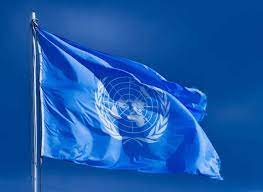UNITED NATIONS, Apr 15: India has called for strengthening the sanctions regimes of the UN Security Council to ensure blacklisting of individuals and entities involved in sexual violence against women in armed conflicts which it said is used as a weapon to subjugate the people.
Speaking at the Security Council open debate on Sexual Violence in Conflict on Wednesday, India’s Permanent Representative to the UN Ambassador T S Tirumurtii said it is vital for the member states to develop a comprehensive legal framework in line with international standards to ensure the effective prosecution of sexual violence as a self-standing crime.
“Sexual violence in armed conflicts, perpetrated by state and non-state actors, is a weapon used to subjugate the people. It fuels displacement, destabilises and traumatises communities, weakens governance and imperils the opportunities for post-conflict reconciliation and stability,” Tirumurti said.
“National governments have the primary responsibility for prosecuting and deterring such crimes in conflict situations on their territories, even if these are alleged to have been committed by non-state actors. Where required, the UN could assist member states in augmenting their capacities to deal with this issue,” he said.
With a view to prevent atrocities, end the culture of impunity and rehabilitate and reintegrate the survivors, India also said that sanctions regimes and other targeted measures by the Council need to be strengthened to utilise their full potential to advance women’s protection from sexual violence in situations of armed conflicts, “including by listing individuals and entities involved in sexual violence against women in armed conflicts.”
With the COVID-19 pandemic threatening to put women and girls in armed conflicts at even higher risk, Tirumurti called for nations to work together to mitigate the impact of the pandemic on sexual violence in armed conflicts and to “preserve our hard-won progress in this field.”
Special Representative on Sexual Violence in Conflict Pramila Patten cited over 2,500 UN-verified cases of conflict-related sexual violence in 18 countries last year alone and told the Council there was a “chasm between resolutions and reality.”
“When history looks back on this painful episode – as part of the long litany of battles fought on the bodies of women and girls, from Bosnia to Rwanda, Iraq, Syria and elsewhere – we will rightly be asked what we did to honour our commitments,” she said.
The Special Representative also drew attention to the chronic underreporting of wartime sexual violence, due to “stigma, insecurity, fear of reprisals, and lack of services,” all of which have been compounded by COVID-19 containment measures.
“Proactive measures…for survivors to safely come forward and seek redress have become more urgent than ever,” she said.
Tirumurti further emphasised on the need for the member states to adopt a victim-centered approach to preventing and responding to sexual violence in armed conflicts.
“States must ensure adequate funding for comprehensive, non-discriminatory and multi-sectoral assistance for victims of sexual violence, like medical, psychological, social and legal services,” he said.
He also pointed out that understanding the nexus between terrorism, financing of violent extremist groups, trafficking and sexual violence in armed conflicts must inform Council action on this important matter.
Calling for mainstreaming of the gender perspective in peace operations and increasing women’s representation in peacekeeping as prerequisites for prevention and response, Tirumurti said greater participation of women in conflict resolution and post-conflict reconciliation processes needs to be promoted to address deep-rooted inequality and subordination in the society.
“It is important to make this a precondition for any peace process to succeed.”
India, one of the largest troop-contributing countries to UN peacekeeping, has the distinction of sending the first all-women Formed Police Unit (FPU) contingent to Liberia in 2007, he said.
This unit not just managed criminality, deterred sexual and gender-based violence and helped rebuild safety and confidence among the Liberian population but operationalised the spirit of Security Council resolution 1325, which reaffirms the important role of women in the prevention and resolution of conflicts, peace negotiations, into action.
“These courageous Indian women patrolled Monrovian streets at night, taught Liberian women self-defence skills, conducted classes on sexual violence, maintained calm during the Ebola crisis and devoted time and resources above and beyond the call of duty to protect the local communities,” he said.
“The legacy these Indian woman peacekeepers left behind was the next generation of female Liberian leaders, who are serving in the national police today,” he added.
Tirumurti also lauded Indian woman peacekeeper Major Suman Gawani, previously deployed with the UN Mission in South Sudan, who was awarded the UN military gender advocate of the year-2019 for her role in mentoring over 230 UN Military Observers and ensured the presence of women military observers in each of the Mission’s team sites.
Gawani also trained South Sudanese government forces and helped them launch their action plan to prevent conflict-related sexual violence. PTI YAS AKJ
NSA
04150938
NNNN


